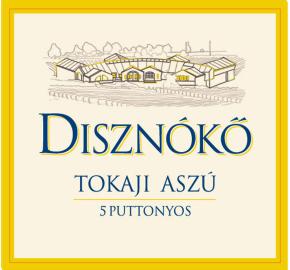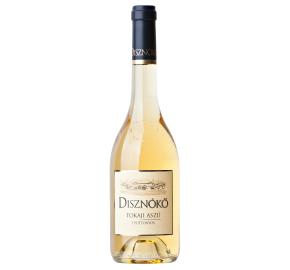Disznoko - Tokaji Aszu - 5 Puttonyos 2013
Log in to view pricing and order online
Don't have an account? Register here
Item# 11276G-13/6PK
James Suckling
95pt
Vinous Media
92pt
Wine Enthusiast
96pt
Wine Spectator
93pt
Wine Advocate
93pt
Tasting notes
Golden amber, the nose bursts with intensity: fresh fruits, apricot and citrus aromas. A beautiful balance between
vivacious acidity and sweetness. The Disznoko Tokaji Aszu 5 puttonyos tastes fresh and is always superbly complex
and focused. Amazing length, with a slightly spicy finish. Fantastic!
Ageing
The wine was aged for 18 months in oak barrels of 225 litres, mostly in oak barrels of several vintages.
Bottled in August 2017.
Estate
The name Disznoko meaning "the rock of the wild boar" was first recorded in 1413 and refers to a large rock atop a
small hill overlooking the vineyards. Listed as a "first growth" as far back as 1732, this 150ha vineyard in the
south west of the Tokaji region has long been regarded as one of the region's finest. As with much of Tokaji, Disznoko's
fortunes suffered under nationalization during the Communist era. But, in 1992, it was purchased by AXA Millesimes
(owners of Chateau Pichon Longueville and Quinta do Noval, amongst others) who have reinvigorated Disznoko and put in
the love and investment required to return it to the top rank of Tokaji estates.
Food pairing
With the vivacious acidity balancing the sweetness, Disznoko Tokaji Aszu 5 puttonyos can be savoured on its own,
instead of dessert, at the end of the meal or chilled as a refreshing aperitif or with canapes, pates, or foie gras.
Also excellent with a wide range of dishes such as poultry, white meat with cream-based sauces, mushroom or seafood
risotto. East Asian, slightly spicy dishes such as Thai green curry chicken. With younger, not too salty blue cheeses,
or simply with fruit (apricot, pears or fruit salads) or fruit-based desserts (e.g. apricot tart, fruit cake, mandarin
sorbet). 2014 Disznoko Tokaji Aszu 5 puttonyos is especially good with mature blue cheese, with fruits or with
fruity desserts.
Ready to drink but with significant ageing potential (20 years or more). To enjoy the finest nuances, Disznoko Tokaji Aszu 5 puttonyos is best served cool (11-13C).
Ready to drink but with significant ageing potential (20 years or more). To enjoy the finest nuances, Disznoko Tokaji Aszu 5 puttonyos is best served cool (11-13C).
Vinification
Around 75% of the aszu berries were macerated in a finished wine for half a day. The most shrivelled aszu berries
were soaked in a heavily fermenting must for 2 days for their skin contact, with several pumping overs. After pressing
the fermentation took place in stainless steel vats.


